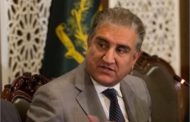Los Angeles, Nov 6: Singer-actress Jennifer Lopez says she’s never had any intention of coming across as raunchy in her music videos because she has always been a “good girl.” Speaking to Marie Claire about the famous track, Lopez said: “I wanted it to be beautiful and sexy, not sexy and raunchy. Sometimes when you’re younger, you go for raunch, or shock value, but I don’t need to do that. “I did sexy things (growing up) but I was always more the good girl who was falling in love as opposed to the naughty girl who was running around.” The “Waiting for Tonight” crooner, who is believed to be dating backing dancer Casper Smart again, split from her third husband Marc Anthony, with whom she has Max and Emme, in July 2011 after 10 years of marriage, reports femalefirst.co.uk. It was a difficult and heartbreaking time for her, but she believes the split brought her closer to her friends.
“I think I realised they were as important – if not more important – when I divorced Marc. I just realised that I had been through that a couple of times and there they still were. Like they say, men come and go, but my girlfriends are always there for me,” she said












1 Comments
Tara Nath Ghimire
Nepal, South Asia’s oldest nation state, never colonized, fought off the East India Company.
“New Delhi’s relations with its neighbours have been characterised by chronic friction. Sikkim got swallowed up in 1975. India midwifed the birth of Bangladesh, but bilateral relations have always been rocky. Sri Lanka’s Tamil separatist war became an extension of Tamil Nadu state politics, sucked India into a military quagmire, and lead to the assassination of Rajiv Gandhi by a suicide bomber in 1991. Bhutan has leveraged partial sovereignty for economic bonanza from hydropower exports
Independent India inherited some of the divide and rule tactics of the British in Kathmandu, but they did it a lot more crudely. India has behaved like an overbearing, arm-twisting, neighbourhood toughie. There have been only a few years during which bilateral relations could be termed healthy and harmonious. Most Indian politicians, bureaucrats and diplomats have come across as petulant and mean, while many Nepali leaders have been either utterly servile or thoughtlessly confrontational.
There have been two Indian blockades before this, the last one in 1988-89 when the Indo-Nepal border was sealed for 13 months, should have given a succession of Nepal’s rulers sufficient time to implement a long-term strategy for self-reliance and import-diversification. We did neither
No action, no preparation, no alternatives. A country can only be politically independent if its domestic affairs are in order and its economy is on a healthy growth trajectory
India’s rulers may be behaving like the boors they are, but our nationalistic bravado is not backed up by an ability to stand on our own feet
India should pick someone its size. This is not an Indian blockade, it is an Indian siege. Nepal’s hospitals are running out of emergency medicines, earthquake survivors haven’t got relief and an entire country of 30 million is being held hostage. “
“It has not always been smooth sailing: Nepal being a sovereign entity, with a history of freedom and independence considerably longer than India’s, cannot be constrained to choose its course according to Indian inclinations, and it has often asserted its own view and perception of where its interest lies.
From India’s point of view, this level of mutuality is important and must be sustained, for a settled relationship of friendship and collaboration with Nepal is the cornerstone of its Himalayan strategy. Over the years, there have been quite a few ups and downs to contend with, and Nepal has sometimes chafed at what it saw as overbearing Indian demands.
A very senior Indian diplomat carried a very public message to Kathmandu that, in the circumstances, could only fail to cut any ice, indeed, it compounded the problem by giving the appearance of trying to push Nepal in a direction it had not chosen for itself. This episode continues to rankle and may become a long-term blot to contend with.
The problem is the damaging effect of what has been termed a blockade of Nepal by India. In recent weeks, goods traffic from India has been badly affected, leading to hardship in Nepal and emphasizing its vulnerability. The supportive good neighbourly practice that India has tried to make the hallmark of its relations with Nepal would have required more active effort by New Delhi to mitigate Kathmandu’s problem. India’s tough handling of the situation in Nepal can well fuel apprehensions elsewhere in the neighbourhood, where India’s reach is no less significant and where India’s strategic interests are equally closely engaged.
India has unfortunately become so involved in the minutiae of the constitutional and political developments in Nepal that it seems to have lost sight of its basic strategic interests in that country. Nepal has been a historic buffer between India and the trans-Himalaya, and with the rapid opening up of that region, the strategic relevance of Nepal for India has only become more significant. Far from magnifying differences with Kathmandu, the necessary course for New Delhi is to reaffirm its strategic ties and make every effort to repair the relations damaged by the events of the last few months. For this, it needs a correction of course and a return to the supportive policies it had successfully followed for so long.”